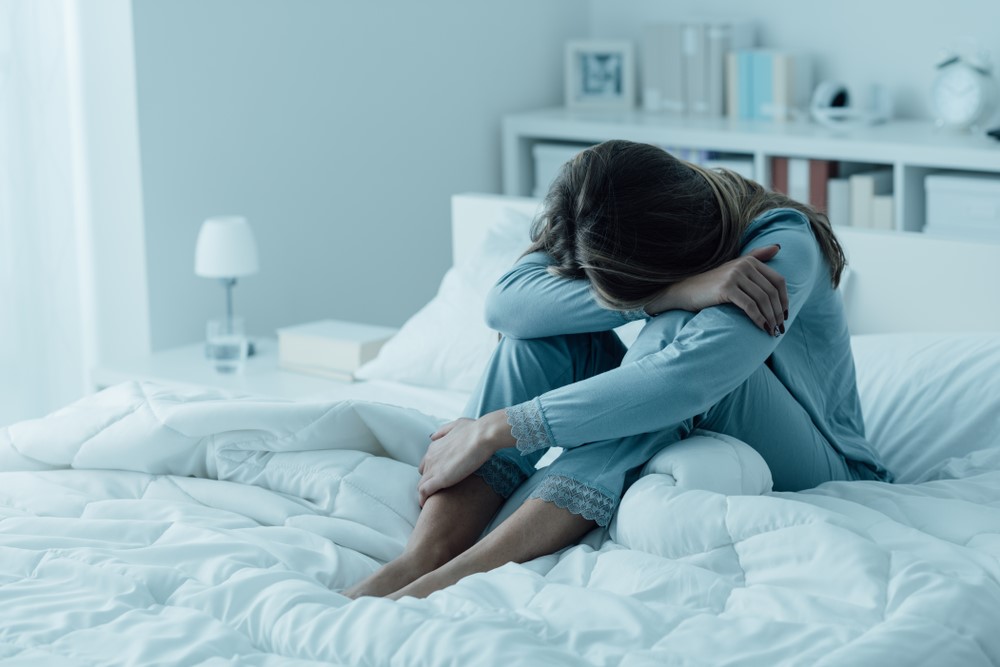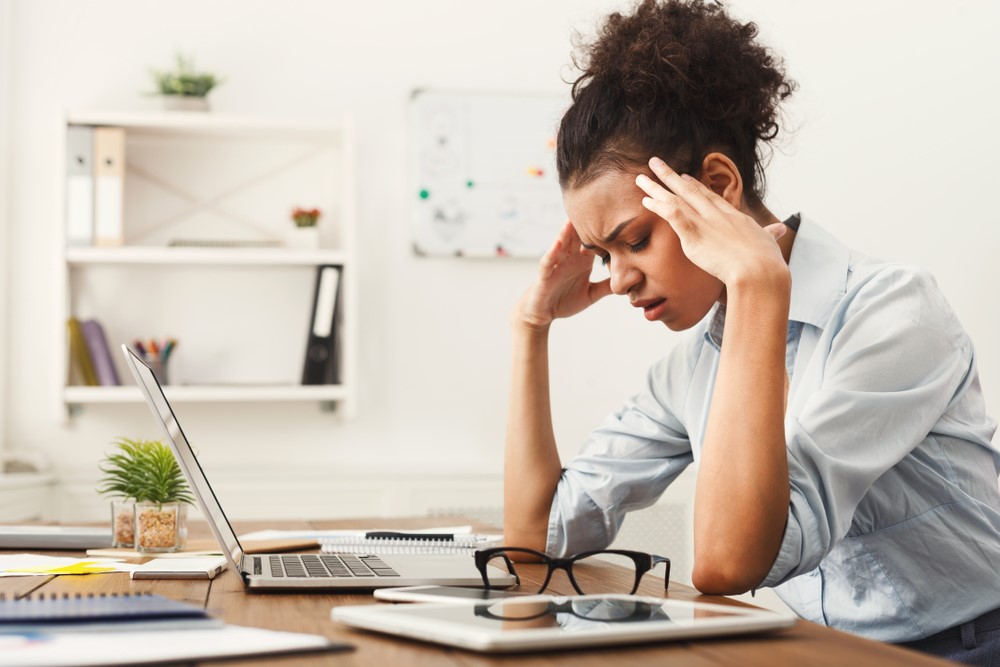Stress
Every living being on Earth experiences stress – it’s the way the biological body reacts to changes or challenges that can occur at any moment.
Some people say that stress is the fuel that gets them through the day. It keeps them alert and energized. This is true because stressful events cause the body to produce spurts of hormones like adrenaline in response. It’s these hormones that give you a boost of energy. And while short episodes of the stress response can help you meet a deadline at work or make you slam on the brakes when someone walks in front of your moving car, long-term or chronic stress can wreak havoc on your body in many ways.
It’s obvious that all men and women feel anxious at times, but scientific and medical studies agree that it’s more probable for women to experience the symptoms of long-term stress and that it affects women differently than men. Here’s a look at some ways stress can impact women’s bodies.
Shutterstock/Prostock-studio
The Physical Impacts
Chronic stress produces a lot of wear and tear on a woman’s body. If it isn’t managed properly, it can affect your overall health, your normal body functions, and even your appearance. Here’s a look at some of the physical signals of chronic stress:
Normal Body Functions
1. Frequent urination
Have you ever had to make more trips to the bathroom before a stressful event like a job interview or making a speech? That’s because frequent urination is a common response to anxiety and stress. Stress can hyper-stimulate your kidneys, triggering them to urge urination more often than normal.
While frequent urination isn’t typically a long-term health issue, it can be uncomfortable and inconvenient. If you’re experiencing incontinence or if you’re worried about an upcoming event where you might not make it to the washroom in time, you can find incontinence products at Sofia & Grace to help you feel more at ease as you manage your stress.
2. Bouts of diarrhea
Those hormones we mentioned earlier that surge into your body during a stressful event can also trigger episodes of diarrhea. Because the stomach and intestines have their own dedicated nervous system that responds to stress hormones, the body reacts by telling the large intestine to “move faster,” sometimes resulting in bouts of diarrhea.
3. Menstrual irregularities, fertility, and menopause
Because hormones control a woman’s menstrual cycle, chronic or severe episodes of stress can influence these hormonal pathways. These imbalances can cause irregular periods or more painful periods, or they can even put the menstrual cycle on hold.
Fluctuations in period cycles can cause problems with conceiving for those who are trying to get pregnant. If you’re going through early menopause, stress-related menstruation issues can make symptoms of menopause more uncomfortable.
General Health and Well-Being
For millions of women, managing stress is a top concern because they know the toll it can take on their bodies. More and more studies are showing us how it affects health and well-being, and here’s a look at some of the effects.
4. Aches and pains
Common body aches and pains can include:
- Headaches or migraines
- Stomachaches
- Muscle pain or tension
- Jaw and/or neck pain
5. A weakened immune system
Having weakened immunity can make you more vulnerable to conditions such as:
- The common cold
- Flu viruses
- Digestive issues like gas, indigestion, diarrhea, and constipation
- Wounds that don’t heal as fast as normal
- Frequent infections like sinusitis
- Cold sores
- Unexplained exhaustion
6. High blood pressure
7. Chest pain or a racing heart
8. Trouble sleeping
9. Obesity or extreme weight loss
Appearance
If you’ve ever looked in the mirror after a stressful day, you’ve probably seen the signs clearly. Chronic stress not only makes us feel “off,” but it can make us look “different.” These are a few ways that your appearance can be affected by your stress.

Shutterstock/Dragon Images
10. Skin appearance
Your skin might lose its luster, and you might be more susceptible to outbreaks of acne. Stress can also contribute to wrinkles and bags under the eyes because of the loss of elasticity.
11. Hair appearance
The hair on your head can also lose its luster and become dry and brittle. Many women say that stress causes hair loss or thinning, and it often causes hair to turn gray more quickly.
12. Facial appearance
Your face might look pale or flushed from stress. And if you aren’t getting enough sleep, you might have puffy eyes.
The Mental Impacts
Often women find that the mental impacts of chronic stress are more difficult to manage than the physical. Here’s a look at how our mental health can be affected by long-term stress.

Shutterstock/Stock-Asso
13. Depression
Bouts of depression can occur when hormones are out of whack. Depression is a serious condition that you shouldn’t take lightly, so if you’re having ongoing feelings of depression, make sure you talk to a healthcare professional.
14. Low morale or loss of self-esteem
15. Difficulty concentrating
16. Mood swings
17. Severe anxiety
18. Panic attacks
19. Unhealthy lifestyle habits
These can include choices such as binge eating, eating unhealthy foods, drinking too much alcohol, smoking, and having a lack of exercise or activity.
20. Social isolation
You might fall into isolation as the result of other symptoms caused by chronic stress. For example, many women who experience bladder leakage when stressed avoid social situations because of it.
Conclusion
Even though we’re living in times of high stress, there are some easy management strategies you can try to lessen the impact of that stress on your body. A stroll around the block after lunch or dinner while listening to some upbeat music can help you forget all your worries and cares.
And if you’re experiencing urinary incontinence or you have a frequent urge to urinate, try these great pelvic floor exercises. They can help you gain more control over your bladder and feel more confident every day.
 The Care Up
The Care Up




